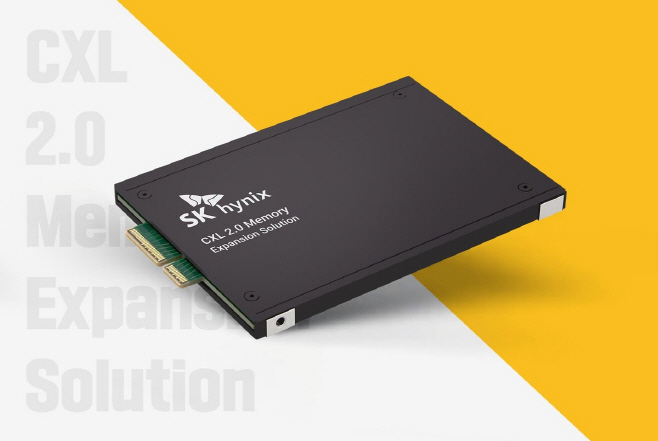
 > Business > Technology
> Business > Technology
 |
| SK hynix's CXL 2.0 memory expansion solution (SK hynix) |
SK hynix said Monday it has introduced the main features of its heterogeneous memory software development kit, a self-developed memory control solution that optimizes the operation of Compute Express Link, or CXL, a next-generation memory technology, to Linux, the world’s largest open-source operating system.
CXL is a next-generation interface that supports large-capacity and ultra-high-speed computations by efficiently connecting the central processing unit, graphics processing unit and memory in high-performance computing systems. When applied to existing memory modules, CXL can expand capacity by more than 10 times.
The HMSDK is SK hynix’s proprietary software for optimizing the operation of compute express link, which is gaining attention as a next-generation artificial intelligence memory technology along with high bandwidth memory, a critical chip for generative AI tools.
“For the development and spread of AI systems such as large language models, it is now necessary to significantly improve not only semiconductors but also the level of system applications to support them,” said Joo Young-pyo, head of the software solution group at SK hynix.
“With this Linux integration and collaboration, we will strive to improve our status as a total AI memory solutions provider by innovating technologies and expanding the ecosystem in this field," Joo said.
The chipmaker said its kit enhances the memory package’s bandwidth by over 30 percent without modifying existing applications. It also improves system performance by more than 12 percent compared to conventional systems through optimization based on access frequency, which relocates frequently accessed data to faster memory.
The company emphasized that as Linux developers worldwide will adopt SK hynix’s technology as the industry standard when using CXL memory, it will strengthen its global collaborations related to next-generation memory.
Most of the operating systems for cloud systems, supercomputers, smartphones, cars and home appliances are built on Linux.
The semiconductor industry expects CXL to enter full commercialization with the release of the first server CPUs, which will apply the CXL 2.0 standard, in the second half of this year. In line with this, SK hynix is preparing CXL 2.0 memory with capacities of 96 gigabytes and 128 gigabytes, with customer certifications underway and mass production planned for the end of the year.








